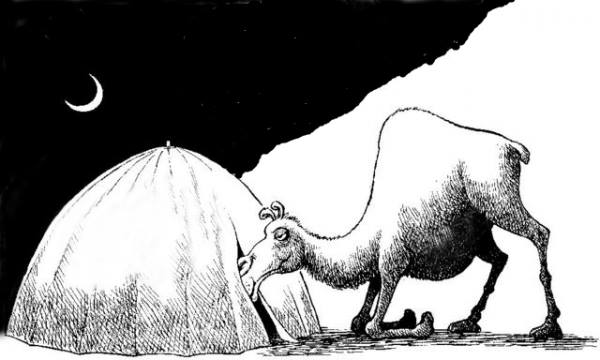The NUREMBERG DEFENSE

THE NUREMBERG DEFENSE
By Deborah Long
“Once again I would stress that I am guilty of having been obedient, having subordinated myself to my official duties, and the obligations of war service, and my oath of allegiance, and my oath of office. And in addition, once the war started, there was also martial law.” Adolf Eichmann 1961
The November midterm elections of 2018 will be a referendum on the Republican Party. It is then that Americans will decide as a nation whether this party should be rewarded for its policies and actions, or whether its senators and representatives should be removed from office and denied the right to chart the path for America into the future. But it will also be a referendum on the American people by demonstrating whether we have become so inured to the moral squalor that defines this Republican Party that we choose to live in a collective ethical coma. If we vote to keep these people in office, we are voting to collaborate with them.
I learned about collaborators as a young girl sitting at my family’s dinner table. My father taught my brothers and me about World War II - the war he fought in. He retold his war stories to us over many years of family dinners, but he placed particular importance on explaining the meaning of the Nuremberg Defense – the legal defense that Nazi leaders like Adolf Eichmann used at their trials to explain their actions during WWII – to exculpate themselves from their crimes against humanity.
My father told us about the moment during the war when he faced his own moral dilemma near the German town of Mittweida, during the Battle of the Bulge. He was a Forward Observer in the 76th Division of Patton’s 3rd Army, and his job was to sneak behind enemy lines and direct the fire of our canons and artillery, all of which were pointed at his own location. Most forward observers were killed in combat because the first shot the enemy took was to take out the forward observer who was directing fire at their precise location.
My father retold the episode about the moral dilemma he faced in Mittweida often in our early lives – because it spoke to a much larger issue: Moral culpability and our individual obligation to take responsibility for our actions.
This story is part of the memoir he wrote in 2004 entitled, “Lucky Long, a Memoir for my Grandchildren”. It begins with this:
“We Americans tend to define our own culture as being the culture of the ideal society. According to our narrow, limited point of view, the “ideal” human will naturally emerge from our so-called American culture…..But defining the culture of a nation leads one into a quagmire of contradictions and confusion.”
On this day in 1945, upon returning from of one of his missions, my father encountered two British soldiers who had been held as POWs and had been released by the Germans as they fled from the incoming Russian troops. He brought them back to his command post where they would be protected by the American forces.
The command post was in the German town of Mittweida. The staff officers had taken over the luxurious home of a prominent German family. The family was not harmed, but they all were subject to the murderous whim of my father’s commanding officer at the time, Colonel Purcell Rodgers. Rodgers was an entitled southerner who had attained his rank through his family’s political connections. He was a cowardly, vindictive man – a vicious alcoholic accustomed to inflicting his sadism upon whomever he chose. He was a villain in my father’s story - a villain who was on our side, a villain who existed within the ranks of the men with whom he fought.
When my father returned to the command post that day with the two British POWs, Colonel Rodgers was already drunk and in need of expressing some cruelty. He ordered my father to line up the German family – husband, wife, and children – in a line against the barn. And he ordered him to assemble the British soldiers to line up with their guns drawn and prepare to shoot. And then he ordered my father to give the order to execute the family. My dad knew that if he followed Rodgers's direct order, he’d be committing a war crime. And he also knew that if he refused to obey Rodgers’s order, he’d be subject to court marshal and the possibility of spending the rest of his life in Ft. Leavenworth. He chose court marshal as he directed the liberated British POWs to lower their guns and walk away. My father was put in jail for that, and stayed there for several days until Rodgers’s superior officer released him and rescinded the charges.
Colonel Rodgers was sent home with a Silver Star, an honorable discharge, and a huge cache of the German family’s silver that had been packed in boxes for transport back to the US by the soldiers he commanded.
This story is how my brothers and I learned the meaning of the Nuremberg Defense – the defense that Nazi commanders used at the Nuremberg Trials. “I was following the orders of my commanding officer”.
Donald Trump and his Republican Party are committing unforgivable acts of cruelty against children seeking asylum in America. Their crusade against immigration has nothing to do with illegal entry into the United States or with national security - and everything to do with white nationalism, and the fascist ideology of history’s bloodiest regimes. However, they are nowhere close to the crimes committed by the Nazis and the soldiers they commanded. Not even close. But maybe this is how it starts. The question is whether Americans will choose to collaborate along with them in November.




